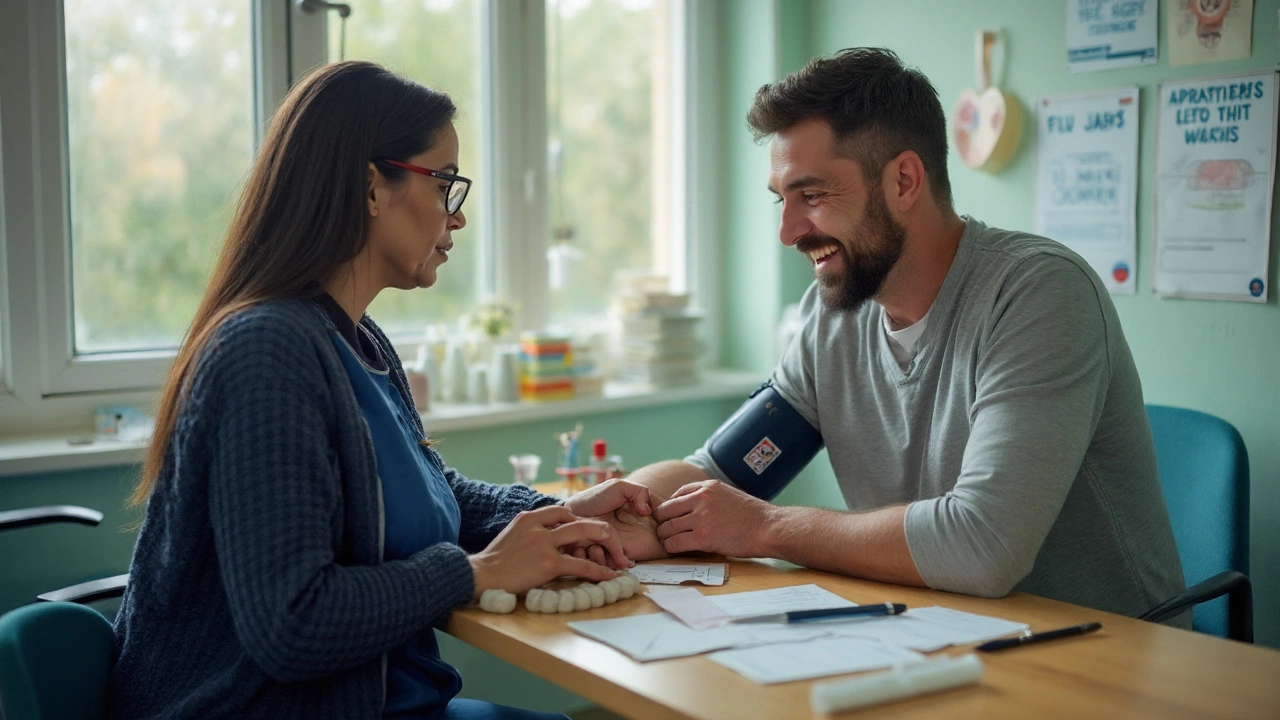Family Doctor Basics: What Every UK Resident Should Know
If you’ve ever wondered what a family doctor actually does, you’re not alone. In the UK, the term usually means a General Practitioner (GP) – the first point of contact for most health concerns. From routine check‑ups to chronic condition management, your GP is the go‑to professional who keeps you healthy and helps you navigate the NHS.
Unlike specialists who focus on one organ or disease, a family doctor looks at the whole picture. They treat everything from a sore throat to high blood pressure, and they can refer you to a hospital or a consultant when you need extra care. Think of your GP as a health hub: you get advice, prescriptions, vaccinations, and referrals all under one roof.
How to Choose the Right GP for You
Finding a GP you trust makes a huge difference. Start by checking which practices are listed on the NHS website for your postcode. Look at patient reviews – they often highlight how easy it is to get an appointment or how the staff treats patients.
Consider practical stuff too: Does the surgery have extended hours? Is there a walk‑in clinic for urgent issues? Some practices offer virtual consultations, which can be a lifesaver if you’re busy or can’t travel.
Booking Appointments and Getting the Most Out of Your Visit
Booking is usually done online via the practice’s portal, by phone, or sometimes through a mobile app. For non‑urgent matters, try the online questionnaire – it can save you a trip and often gives the doctor a head start on your issue.
When you finally sit down with your GP, come prepared. Write down symptoms, any medications you’re taking, and questions you want answered. Clear communication helps the doctor give you the right advice quickly.
If you need a repeat prescription, most surgeries let you request it online. Just make sure you request it a few days before you run out, especially for chronic meds.
Remember, your family doctor isn’t just for illnesses. They handle preventive care too: flu shots, cancer screenings, and lifestyle advice. Regular check‑ups can catch problems early, saving you time, stress, and money.
When you’re referred to a specialist, your GP will send a summary of your medical history, which speeds up the process. Keep copies of any referral letters or test results – having everything in one place helps any future doctor understand your health story.
In emergencies, call 999 or go straight to A&E. Your GP can’t handle life‑threatening situations, but they’ll be your advocate for follow‑up care once you’re stable.
Overall, having a reliable family doctor means you have a trusted health partner for life. They know your medical history, can spot patterns, and help you stay on track with treatment plans. So take a few minutes to find a practice that feels right, set up your first appointment, and start building a relationship that keeps you feeling your best.
Why You Need a GP: What Family Doctors Do, When to See One, and How to Get the Most From Your Visit
Not sure why you need a GP? Here’s what a family doctor does, when to see one vs urgent care, how to enrol in NZ, costs, referrals, and smart prep tips.
Read More
